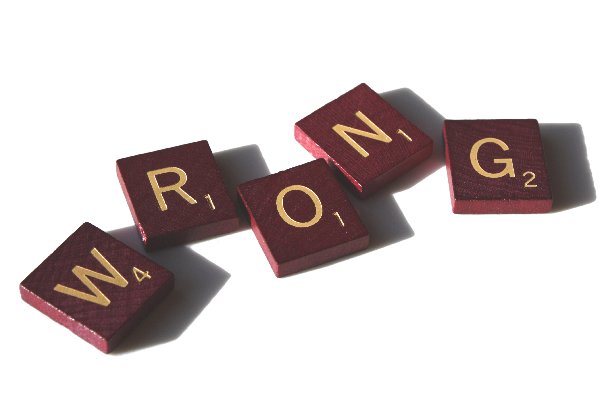当前位置: Language Tips> 实用口语

Wrong是英语中最常用的单词之一,今天我们就来看一下这个貌似简单的单词的四种不同用法。
Wrong可以用作形容词,表示“错误的、不对的”:
That is the wrong shoe, it doesn't match the other one.
那只鞋不对,它和另外一只不是一双。
或用作副词,表示“错误地”:
What am I doing wrong?
我哪里做错了?
Wrong还可以用作名词,表示“错事”:
He has done a great wrong by leaving the club before the end of the season.
他在赛季结束前就离开俱乐部是大错特错了。
以及动词“冤枉、错怪”:
He wronged me, now he has apologised and I have accepted the apology.
他错怪我了,现在他已经道歉,我也接受了他的道歉。
延伸词组:
don't get me wrong别误解我
-What are you doing reading Shakespeare? I thought you hated the classics.
你为什么在读莎士比亚?我以为你讨厌古典文学。
-Don't get me wrong; I love literature, but I just hate poetry.
别误会了;我喜欢文学,只是讨厌诗词罢了。
get off on the wrong foot搞砸,一开始就不顺利
-Tomorrow is our first meeting with the new client, so let's try not to get off on the wrong foot.
明天是我们与新客户的第一次会面,我们得试着别搞砸了。
-Sure. So you'll try not to spill coffee all down this one, right?
当然。这次你别再把咖啡打翻就好啦!
get on the wrong side of someone使某人生气
-That Michael is so rude. I don't know how much longer I can keep quiet about it.
那个叫迈克尔的人好粗鲁喔。我不知道我还能闷不吭声多久。
-Be careful. He's the boss' son so you don't want to get on the wrong side of him.
小心点。他可是老板的公子,你可不想惹火他吧。
(来源:腾讯教育 编辑:刘明)
上一篇 : 英语中的“桥”言“桥”语
下一篇 : “害怕”的各种口语表达
关注和订阅


电话:8610-84883645
传真:8610-84883500
Email: languagetips@chinadaily.com.cn